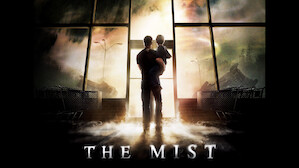Gallery
Photos from events, contest for the best costume, videos from master classes.
 |  |
 |  |
 |  |
 |  |
 |  |
 |  |
It's Time to Celebrate 'Groundhog Day' : 10 Life Lessons You Can Learn from the Bill Murray Comedy. The 1993 movie is deeper than you might think There's nothing better for character development than spending 10,000 years trapped in a time loop. Here's the philosophy behind this classic comedy. It's February 2nd, and movie fans prepare themselves for Groundhog Day with one of the most deeply philosophical films ever made. This year is also the 25th anniversary of the movie "Groundhog Day." (SOUNDBITE OF FILM, "GROUNDHOG DAY") MURRAY: (As Phil) A thousand people freezing their butts off, waiting to worship a rat. “Groundhog Day” is a moral fiction that describes the story of one arrogant character, Phil, his style of life, and his attitude to everybody and everything around. He is sure that he lives a normal life and behaves just perfectly, taking into consideration current situations and moral principles. The movie Groundhog Day, starring Bill Murray, might not strike you as a deep source of ethical instruction, but Joseph Kupfer [1] plumbs its storyline to reveal some delightful ethical insights. He notes that the movie starts with Nietzsche’s idea of the eternal return [2] as a prompt about reflecting on our life and whether it is good The 1993 film Groundhog Day chronicles the life of Phil Connors. The main character, played by Bill Murray, is a self-absorbed weatherman who is given the work assignment to cover Groundhog Day in The film is about a TV weatherman called Phil Connor, played by Ray Murray, who, for some unexplained reason, is stuck in a time loop and wakes up every day on the same day and in the same place: 2nd of February, Groundhog Day, in Punxsutawney, Pennsylvania. The focus of the story lies in Phil’s character arc and development. Harold Ramis’ 1993 movie “Groundhog Day” is so entertaining, you’ll want to see it again, and again, and again. Explore meanings and central themes in the movie. The profundity of “Groundhog Day” is inseparable from the film’s perfectly imperfect protagonist. Bill Murray’s character is self-interested, narcissistic, sexist, and mean — yet as ugly The 1993 Movie Groundhog Day starring Bill Murray arrived on the scene like a lot of other Bill Murray movies. Basically it was reviewed as an okay, albeit lightweight movie. Review of Groundhog Day in Philosophical Films; Review of Groundhog Day in “Philosophy Now” by Mike Faust; Groundhog Day: the perfect comedy, for ever by Ryan Gilbey, The Guardian, Thursday 7 February 2013; In the movie Phil tried to help an old man every day, but the old man still died when the day ends (Groundhog Day). Despite the unpleasant result, Phil acted ethically because for Kant, he acted with good intentions. He wanted to help people regardless of the result. Philosophical author Eric Weiner, writing in his recommended 2020 book The Socrates Express says that Groundhog Day is his favourite movie and “the most philosophical movie ever made.” Weiner points out similarities between Groundhog Day and Friedrich Nietzsche’s theory of Eternal Recurrence. Whereas that movie existed within the early 20th century’s fascination with the tension between the individual and society, Groundhog Day is a movie that can only come out of late 20th/early 21st-century cynicism and malaise. There’s no creeping evil at the outskirts threatening to consume Phil’s world. Groundhog day with Bill Murray and Andie MacDowell is on many peoples Top 10 favorite movies of all time. But who knew that the movie has deep philosophical and Christian themes – in fact, it is a very Catholic. The Theology of Groundhog Day The movie stars Bill Murray as Phil–a weatherman who finds himself re-living a single day of his life–Groundhog Day. If you haven’t seen the movie The Metaphysics of Groundhog Day Lawrence Crocker says it’s about time, and personal identity, and free will. The 1993 movie Groundhog Day was, of course, made as an exploration of the metaphysics of time. The basic idea is that for on-location TV weatherman Phil Connors, the same Groundhog Day, February 2, in Punxsutawney keeps repeating. More on Groundhog Day about every moral approach to life that can be tried. find in Groundhog Day, since the entire plot of the movie is based on some sort of Overall, Groundhog Day serves as an exploration of life and the choices we make, impacting our lives whether positively or negatively. How does the film Groundhog Day serve as an excellent illustration of Aristotle's ethics, mainly as Phil portrays Aristotle's views on virtuous character, living well, moral development, and friendship? The protagonist of the film "Groundhog Day" discovers that what makes life worth living is not immediate gratification, or moral autonomy, or flippant cynicism, or self-deification, but rather encountering those things that give meaning and purpose to our lives. (essay by Stephen Turley)
Articles and news, personal stories, interviews with experts.
Photos from events, contest for the best costume, videos from master classes.
 |  |
 |  |
 |  |
 |  |
 |  |
 |  |